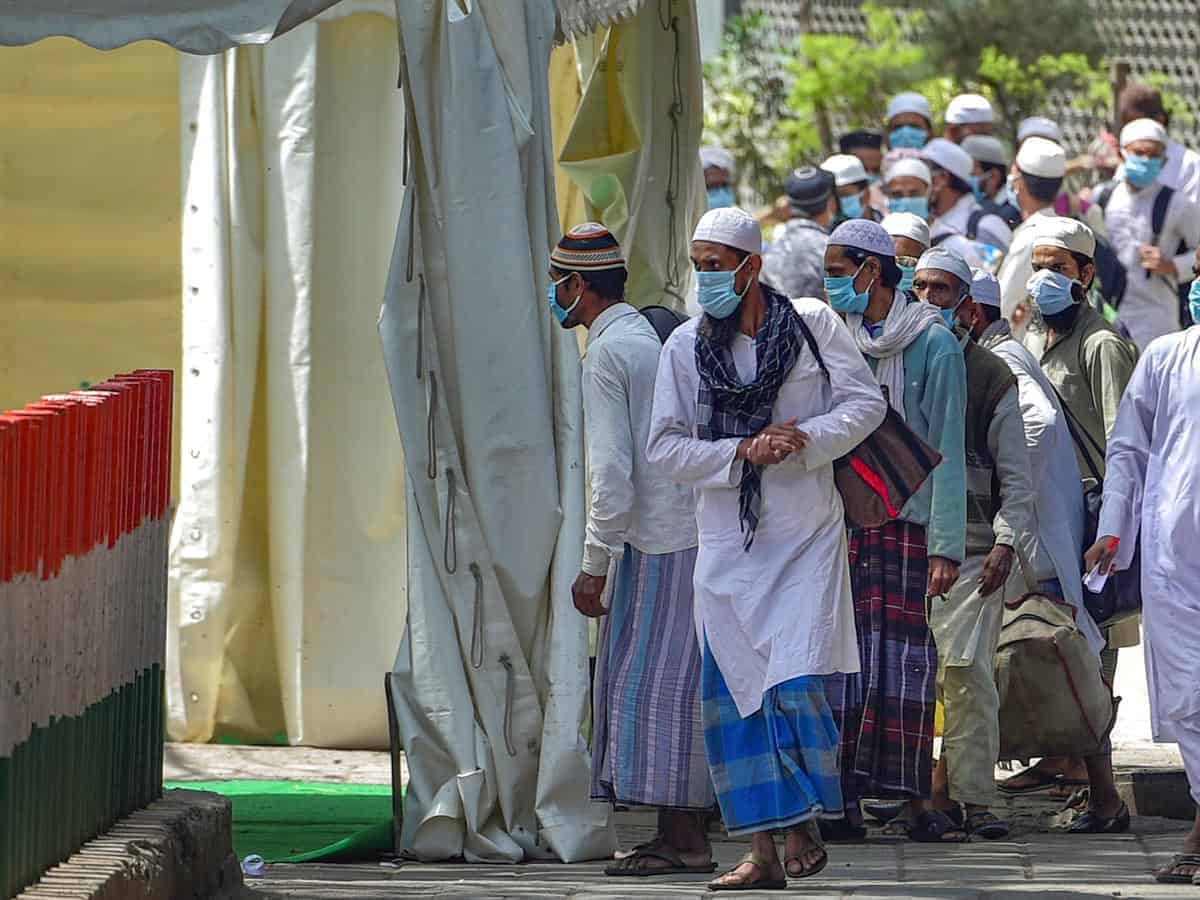
Hyderabad: It is strange that an organisation is 95 years old and yet remains shrouded in mystery. But this is exactly the case with the Tabligh Jamaat.
This puritanical outfit has a global footprint with millions of followers yet not much is known about it. More often than not it is in the news for the wrong reasons. Now that the government of Saudi Arabia has slapped a ban on it sending shockwaves in the Muslim world, the Jamaat itself remains unperturbed. There is neither a protest nor attempt to clarify its position. For the Tabligh preachers it is business as usual. It focus is on six point formula—muzakera (discussion), mashwara (consultation), gashat (visiting homes, shops or any other such place), three-day retreats and fikr (pondering, concern) for the entire world.
Tabligh Jamaat is arguably the world’s largest Islamic organisation with presence in 150 countries. Come rain or sunshine, its adherents are on the move round the year calling people to what they believe is the right path. To put it in the Quranic terminology: doing Amr bil Maroof wa Nahi anil Munkar (enjoining good and prohibiting evil). But unlike other organisations, Tablighi Jamaat shuns publicity like the plague. No advertisements, posters or news of its programme is ever circulated even when big ijtemas (congregations) are held. The Jamaat still adheres to its founder, Maulana Muhammad Ilyas’, ways of keeping the whole work unconventional. Every bit of information is spread through word of mouth with the Jamaat followers meeting people individually to carry out their dawah work.
Maulana Ilyas, it is said, attached great importance to unity, integrity and concentrated effort. He advised people to travel together as far as possible and to remain united. “We have no formal type of organisation, no office, no register and no funds. Our work is to be shared by all Muslims,” is what he said in one of his earliest speeches.
Even today this itinerant movement functions on the pattern of mosques where people from different walks of life gather and disperse soon after prayers. Much the same way Jamaat followers come from different backgrounds, spend time together, learn faith and then go back to their daily routines. The preachers go the extra mile inviting fellow Muslims to “the right path and instilling in them the importance of trusting Allah (swt) in all matters to the exclusion of all else.” After doing all this they seek God’s pardon for their inadequacies and failures.
“O Allah, forgive our sins. Forgive us for our lapses in carrying out the work as deserved by Your cause. We have miserably failed in fulfilling the mission of the Prophets – engaging in worldly pursuits. We are grateful to You for having shown us Your path and for granting us the service of Your cause. Accept from us the struggles that we have made and bless our efforts.” Entreaties of this nature fill the nocturnal prayers of the Jamaat adherents.
As is well known, talk of Tablighi Jamaat followers centers around things below the ground or matters above the skies. They studiously avoid talking about politics or worldly matters. An apolitical body, it doesn’t take any stand on any issue even if it concerns Muslims. Be it Babri Masjid, triple talaaq or the controversial Citizenship Amendment Act, the Tablighis have no take at all. All that matters to them is internal cleansing to achieve success in the hereafter. So it doesn’t come as a surprise that its proponents are least bothered about the Saudi government’s action of banning their organisation.
The revivalist movement was founded by a Deobandi Islamic scholar, Maulana Ilyas, way back in 1926 with a view to inspiring religious zeal and turn ordinary Muslims into believing Muslims. Despite his unimpressive personality, physical weakness and speech impediment, he undertook the near impossible task of guiding people to what he believed in. Initially he concentrated on the Mewat region near Delhi as the Muslims there were uneducated. They were like the Arab Bedouins. His missionary work gradually spread far and wide. You may find people working for the Jamaat in almost all corners of the world.

